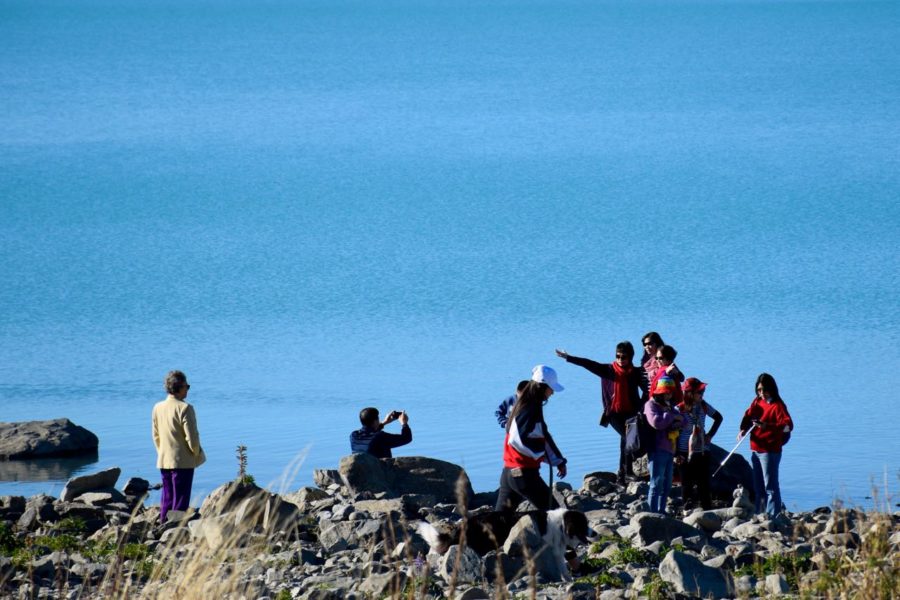25th October 2023 By Contributor
New Zealand tourism needs to have a contest of ideas, and for stakeholders to rally behind the best solutions, writes Hotel Council Aotearoa’s strategic director, James Doolan.

A change of government creates the opportunity for much better dialogue between industry and policymakers. It’s a fresh start, which is what tourism desperately needs. The real tourism experts are on the private sector side, so unless policymakers are prepared to listen and learn, it’s hard to make progress.
Key tourism voices have been calling for wholesale reform of governance and funding for some time now. Platitudes such as “value over volume” or “don’t forget domestic travellers” won’t cut it without a genuine roadmap for progress. Local communities must in future see the benefits of tourism and share in the economic upside. This is a problem that’s been solved in lots of destinations around the world, but not in New Zealand.
The previous government had a lot to deal with during Covid, which made it difficult to get genuine engagement. Post-Covid tourism planning lacked substance and the recovery has been slower than ideal. The incoming government also has a heavy work program and many election promises to fulfil.
The tourism industry will need to set priorities and work collaboratively with central and local government if we want change. Hotel Council Aotearoa has been working on the funding problem for three years now, including modelling new funding regimes that would give local authorities an ongoing “tourism dividend” every year.

Hotel Council Aotearoa has relationships with all sides of the House, and we will of course continue to foster those relationships. But relationships are only part of the puzzle. What tourism really needs is a willingness to have a contest of ideas, and for stakeholders to rally behind the best solutions for New Zealand.
HCA’s vision is that tourism reform is done in a bipartisan manner, drawing upon international best practice. Who doesn’t want local communities to get real and tangible benefits from increasing tourist arrivals? Who would disagree with the idea of modelling the best funding regimes from overseas (rather than reinventing the wheel)? At some point in the next three years, new tourism legislation should pass through parliament in New Zealand with near-unanimous support of all MPs and all of industry celebrating together.
A wise man once said: “Follow the money”. An enduring solution to New Zealand’s tourism funding problem requires real mahi and goodwill from all stakeholders. HCA’s overriding priority is for that work to begin in earnest with realistic but firm timelines.
The second priority is for New Zealand to get real about a national regulatory framework for short-term rental accommodation providers (or “STRA”), such as Airbnbs. Nobody is calling for STRA to be banned, but it’s naïve of policymakers to pretend that a regulatory response isn’t desperately needed. STRA is contributing to a massive worker accommodation problem in Queenstown.
STRA is making it much harder for New Zealand’s smaller towns to attract genuine hotel investment. STRA properties have much lower fire and life safety standards than traditional hotels, meaning we are gambling with the safety of our guests. STRA creates minimal employment and offers no public amenity such as lobbies, bars, restaurants and meeting space.
Once again, New Zealand should start with best practice overseas because numerous destinations have implemented well-designed regimes to manage STRA. Local authorities shouldn’t be left to design their own local regimes. It would be a terrible guest experience and, frankly, it’s also unfair on Airbnb as a business.
HCA would have no concern at all if a smaller party – ACT or New Zealand First – ended up with the tourism portfolio, so long as the new minister and government is prepared to work in partnership with industry. Unfortunately, the portfolio changed hands regularly under the previous administration and HCA was itself a newly-formed organisation, which made it hard to drive change. This is a moment in time for tourism.
The next minister of tourism can help drive real and meaningful reform that will benefit all New Zealanders for generations to come. The word “legacy” is sometimes overused, but I can understand why the chance to create a legacy in tourism might be attractive for any and all MPs, including leaders of the minor parties.
Once again, HCA’s vision is that tourism is reformed in a bipartisan manner – all the MPs elected to power last weekend need to be stakeholders in the future sustainable growth and success of tourism. After all, tourism is not some economic sideshow – it’s set to become New Zealand’s largest export earner and one of our largest employers again.